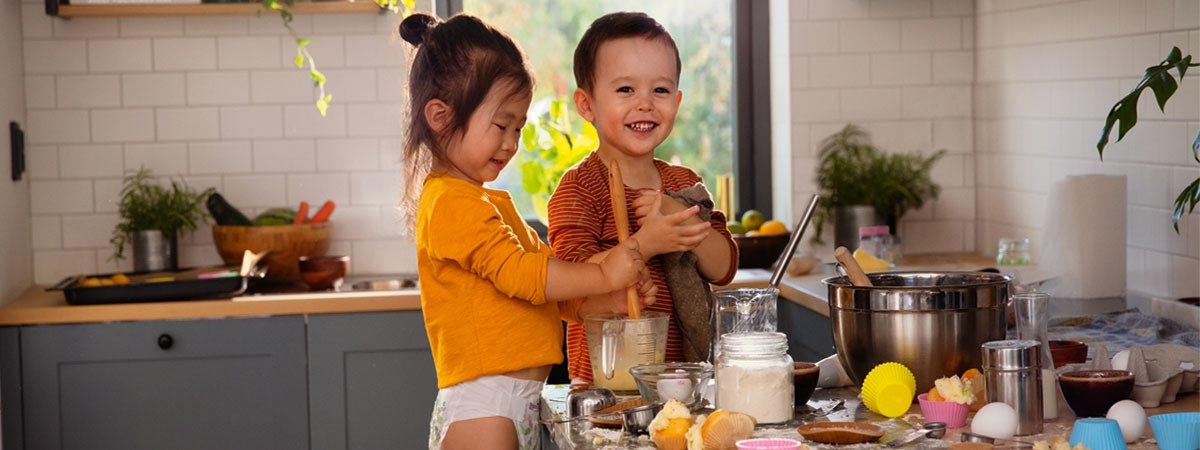The afternoon hours
The afternoon arrives, and tiredness sets in. After a long day, energy levels are often at a low and the body is no longer willing – the hours leading up to dinner can feel like an eternity and are often quite difficult to get through. Here are our best tips on how to make the afternoon hours go more smoothly.
When you collect your child from preschool, the next part of the day begins – a period that can sometimes be something of a challenge. Perhaps you have to take care of a few errands on the way home and then find the time to make dinner before your little one gets too hungry – and too tired! To make daily life run a little more smoothly, adults and children alike often need to refill their energy levels – a snack in the form of fruit or a sandwich can do wonders for a child’s mood. It can also be sensible not to be overly ambitious with your plans or expectations, as it then becomes easier to avoid stress and create a better atmosphere at home.
Tips on how to avoid overly tired or hungry children in the afternoon
The best advice we can give is to try to make the hours leading up to dinner as undemanding as possible. Whiny children are usually just tired or hungry, so make sure you focus on the most basic needs. Here are some reliable pieces of advice to help you cope during the hours between preschool and dinner.
- View this period as time you have set aside for your child. If you have to do some sort of chore or errand, try to turn it into an activity that you can do together, and involve your child where possible.
- Remember to take care of your own physical needs. It is easy to focus solely on your child and perhaps fail to notice that your own blood-sugar level is starting to dip. Make sure that you eat and drink something refreshing before tiredness sets in.
- Your child may also need a little snack to recharge his or her energy. Fresh fruit or a little sandwich can often be just as delicious and more nutritious than other types of snacks such as biscuits, raisins or sweets.
- As far as possible, avoid getting stuck in long conversations with other adults. It might not be the best time for a child to have to stand and wait for mum or dad while they just talk, talk, talk... Save non-urgent conversations with other adults for another occasion.
- If it’s not a good time to answer the phone, just let it ring. The caller can easily leave a message or call again a little later. It may actually be sensible to put your phone away completely so that you can more easily maintain focus on your child – your little one has probably been longing to see you all day and is likely to be in great need of some quality time together with lots of hugs and chit-chat.
- If you feel you have the energy, let your little ones help you with the dinner preparations. Perhaps each child could have their own bowl in which to mix peas, corn, grated carrots or other ingredients. Not only is this a way for children to have fun and stay occupied for a while, it’s also enjoyable for them to eat a meal that they have helped prepare!
- If possible, make as many dinner preparations as you can in advance, and plan simple meals that you know the whole family will like. Another helpful tip when it comes to cooking is to make enough food so that you can put a few extra portions in the freezer – perfect for the inevitable day ahead when there are hungry mouths to feed but you simply don’t have the energy to cook something from scratch.
- Children generally like knowing what will happen, and it can therefore be good to create a form of predictability, through a routine or habit, so that they know what to expect from the afternoon period. For example, having the same habits and dinner routine can help make the afternoon hours pass more smoothly for all concerned.
Please note that all information above is based on Swedish recommendations.
